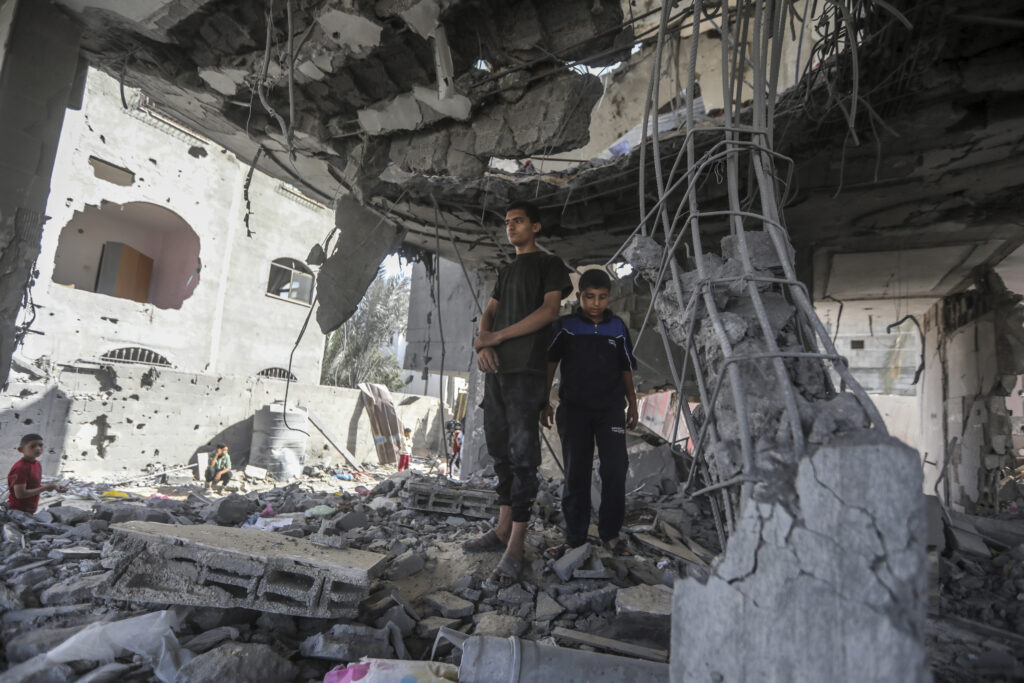
The Hamas delegation in Egypt has made “noticeable progress” in ceasefire talks, after months of deadlock, according to Egyptian media.
The Egyptian state Al-Qahera news announced on Saturday that Hamas and Israel had reached a consensus on many of the disputed points, though it didn’t elaborate on what those were. Other sources dispute this, including some Israeli officials. One Israeli official told the Associated Press that even a deal to release the roughly 100 hostages still held by Hamas wouldn’t prevent Israel’s invasion of Rafah, nor end the war.

According to Egyptian and Hamas officials speaking with the outlet, current talks in Cairo aim to de-escalate the war in phases. The first phase would be a 40-day ceasefire, staving off the Rafah operation, in exchange for female hostages. The next phase would see Israel withdraw from a coastal road, allowing Gazans to return to their homes in the north, and for humanitarian aid to flow more freely. In the third week, talks would begin regarding a formal end to the war, while Israeli troops would withdraw from Central Gaza.
The talks aim to bring about a ceasefire based on less contentious issues, holding off the more polarizing questions for a later date. The status of Hamas post-war, who will control the Gaza Strip, and a potential Israeli military occupation are some of the long-term questions that will be discussed in later talks.
One Israeli official, speaking with AFP, said that if a positive development is seen in the talks, Israel will send a delegation to Cairo for further negotiations.
Hamas is facing renewed pressure to accept a deal, both domestically and abroad. U.S. State Secretary Antony Blinken pressured Qatar to evict the group’s leadership from the country if they didn’t accept a hostage deal, according to the Washington Post.
CLICK HERE TO READ MORE FROM THE WASHINGTON EXAMINER
Israel faces pressure of its own, but also a conundrum. Accepting a hostage deal as part of a permanent peace deal would fall short of the “total victory” Prime Minister Benjamin Netanyahu promised, and anger the far-right members of his government. Some far-right Cabinet members have threatened to resign if a peace deal was reached without a complete victory against Hamas.
The War in Gaza is the bloodiest since Israel’s independence in 1948, with deaths estimated to be in the tens of thousands. These include the 1,200 mostly civilian Israelis killed in Hamas’s initial onslaught on Oct. 7.






